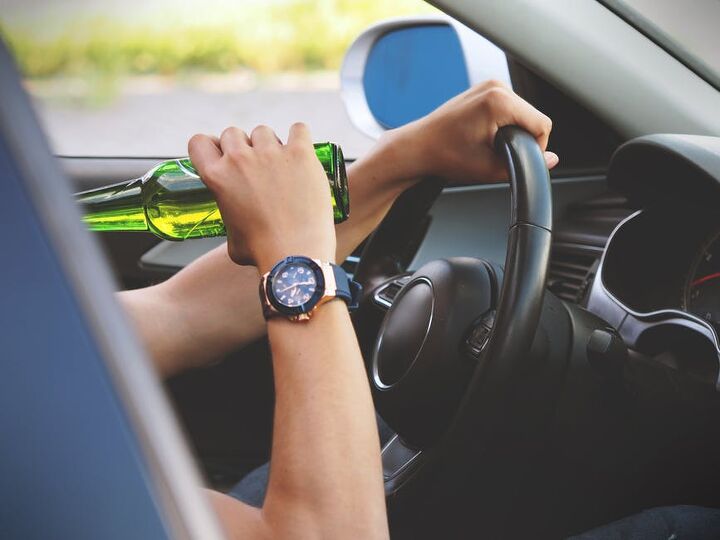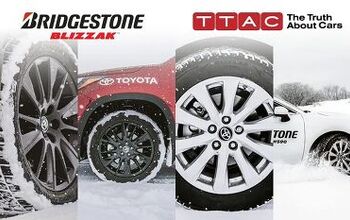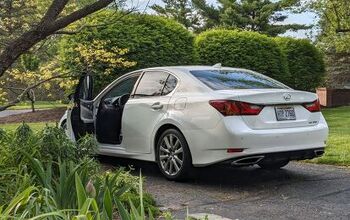It's Looking Like Virginians Won't Get a Chance to Legally Drink and Drive at Home

A bill seeking to amend Virginia’s DUI laws passed through the state Senate last month, but don’t expect the law to make it onto the books. The legislation aimed to make intoxicated driving legal if a driver performed the boozy feat on his or her own private property, with all other existing laws remaining the same.
As you might expect, this didn’t go over well with law enforcement, politicians, safety advocates, and various other concerned citizenry.
Introduced by Sen. Richard Stuart, the bill amended existing impaired driving laws with the statement, “This section shall not apply to any person driving or operating a motor vehicle on his own residential property or the curtilage thereof.”
Currently, violation of a DUI law leaves one on the hook for a number of penalties in the state of Virginia. Drivers could face a license suspension, $500 fine (at a minimum), or 50 hours of community service. The law forbids operation of a motor vehicle — meaning car, motorcycle, ATV, moped or train — anywhere in the state, meaning rural landowners with large properties could find themselves facing the long arm of the law after quaffing too many Coors Banquets while tooling around the back 40.
After a Senate committee sidelined his bill out of fear it was too broad, the senator changed his initial proposed amendment, adding specifics. It was this version the committee passed, as well as the Senate. Stuart claims the operation of a motor vehicle wasn’t at the forefront of his mind when he tabled the bill. Rather, it was cases where citizens are charged for drinking in a parked car in their own driveway.
“The bill had to do with a DUI on your private property or current property,” he said later. “And by trying to define where you could actually be charged with it, I think my bill went a little too broad.”
The outcry was immediate, with many calling the law a first step on a slippery slope. Among its detractors were the Virginia Association of Commonwealth’s Attorneys and Washington Regional Alcohol Program. A spokesperson for the Virginia Association of Chiefs of Police said that, for supporters, the bill came down to property rights and the ability to not have the state interfere with the enjoyment of that private property. The spokesperson did admit it sent a mixed safety message to youth.
In theory, potentially dangerous operation of a vehicle would be contained to the person’s property, less the cops pounce. However, opponents claimed a person drinking in a vehicle on private property can’t be counted on to stay there.
It’s probably a debate that’s dead in the water because, as of today, so is the bill. A Virginia House panel reportedly voted down the bill on Friday.
Driving under the influence is illegal in all 50 states, though some state laws are vague on whether that applies to private property. In many, DUI laws apply to all places and properties, while others make the distinction of “public” property. Still others add mud to the water by forbidding intoxicated driving on properties that are accessible to the public, which aptly describes most non-gated yards and properties.
These vague distinctions are just one of the reasons why lawyers will always exist.

More by Steph Willems
Latest Car Reviews
Read moreLatest Product Reviews
Read moreRecent Comments
- Kwik_Shift_Pro4X I would only buy with manual. Even if the auto is repaired, it will most likely fail again. Just a bad design.
- Fed65767768 This is a good buy despite the mods, as unlike most Focii this old there's little rust.
- Ashley My father had a '69 Malibu that I took cross-country with a lot of detour on the way back. It was OK, but nothing spectacular, and after I got back he had nothing but trouble with it until it finally died in 1974. I had a Malibu rental in 2003 and at one point parked it next to a restored '69 in a shopping center parking lot in Redding, CA. I imagine the two of them had lots to discuss while we were eating at the restaurant inside.
- 2ACL My girlfriend currently drives a 2018 SE hatch. Automatic, but I've been handling the fluid services (looking to do another along with the filter soon) and it's been a solid runner for her. My only issue with its dynamics is the transmission's gingerly kick down out of corners (the SEL is the lowest trim that offers manual control functionality IIRC). Otherwise, none of the quirks that've blighted the Powershift's reputation have manifested.A stick would drastically extend its life expectancy. I know she isn't as committed to stick life though, which influenced my approval.
- MaintenanceCosts GM hasn't put any effort into any Cadillacs except the Blackwings and the electrics. They're getting out what they put in. Pretty simple, really.The XT4/5/6 are all just slightly up-styled versions of Chevy products, but priced as if they were on dedicated luxury platforms like the BMW and Benz competitors to the larger two. The XT6 is especially embarrassing.Even the Escalade is just a Tahoe/Suburban with a few trick design touches and a halfhearted materials upgrade. The good news for Cadillac is that the Tahoe/Suburban are seen as upscale enough that a half-a$s upgrade to them can be a legitimate luxury car.Where's the "gotta have it" factor? Where are the dazzling interior designs? Where's the swagger? Until those show up the brand is just a set of memories.


































Comments
Join the conversation
I’m not keen on the recent spate of “knee bone’s connected to the leg bone” type of laws. A recent absurd application occurred when an obese police officer attempted to climb a fence in pursuit of a suspect. The corpulent cop vapor-locked and ended up in the coronary care unit, the suspect was subsequently charged with assaulting a police officer. That’s risible. There was no intent. Stop the insanity.
If there's a policeman on my private property he better have a god damned warrant.